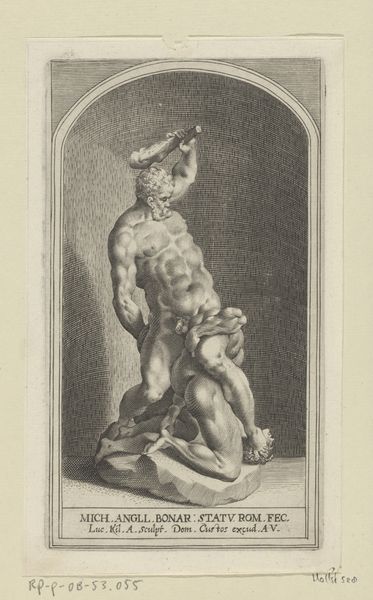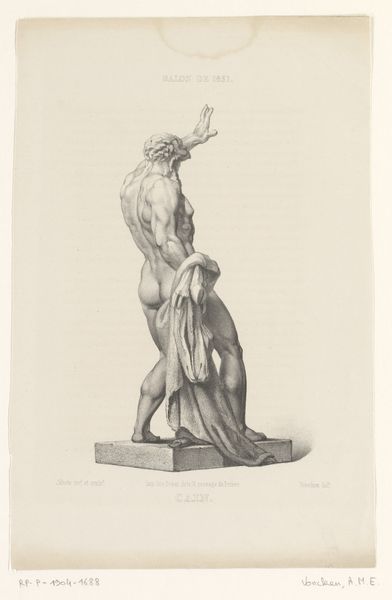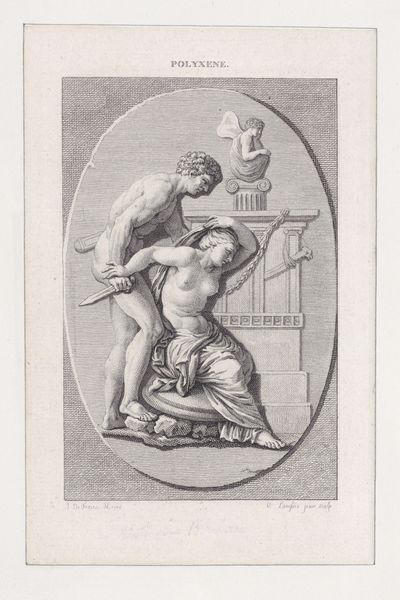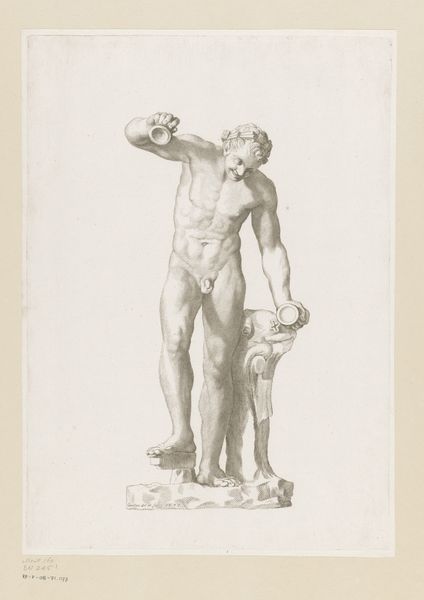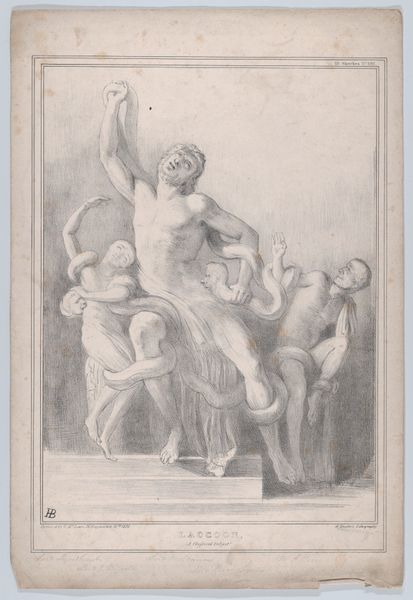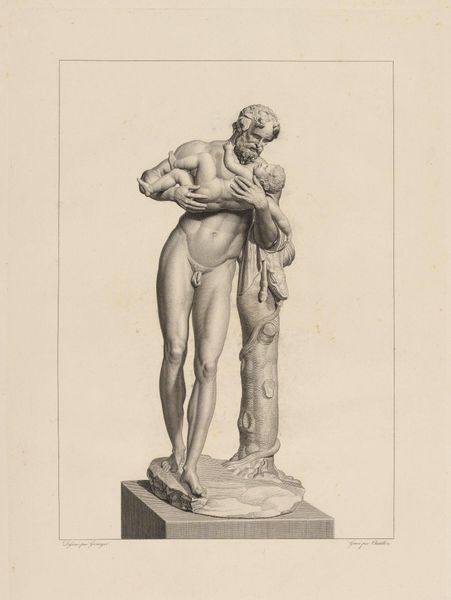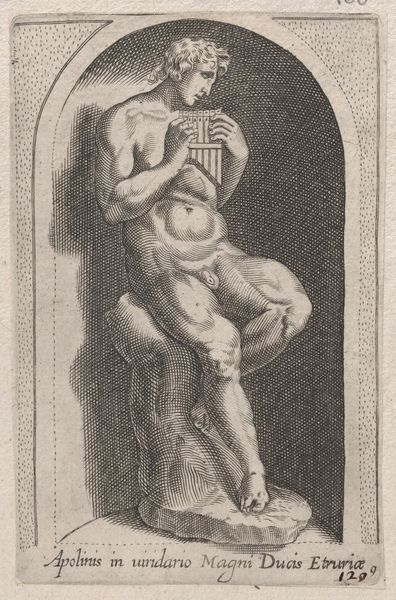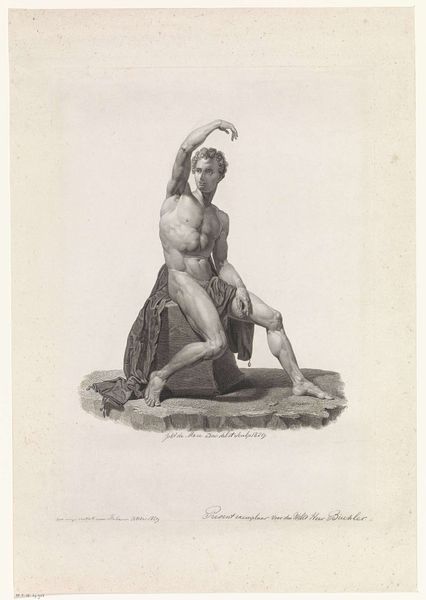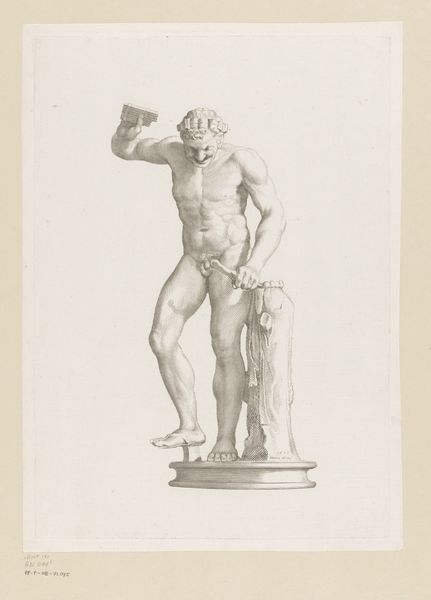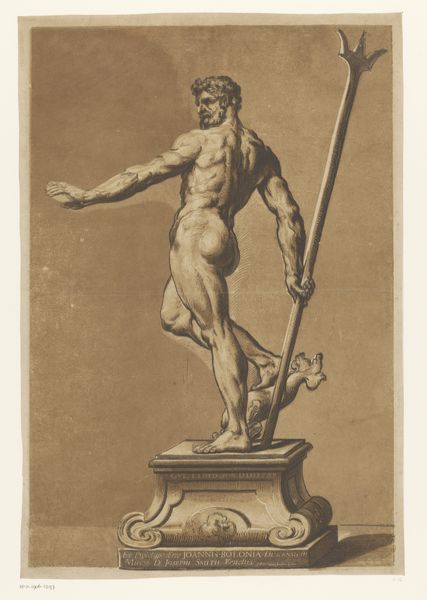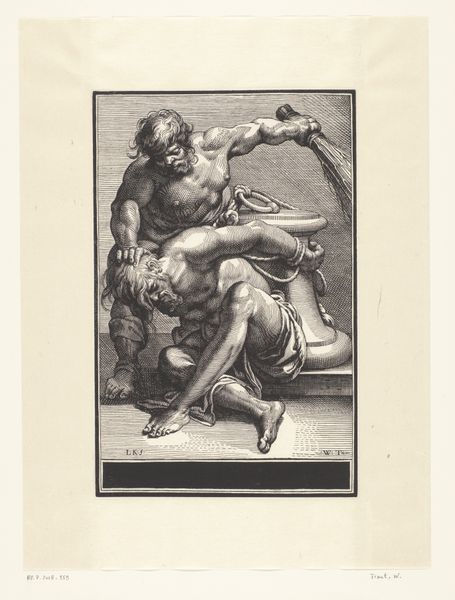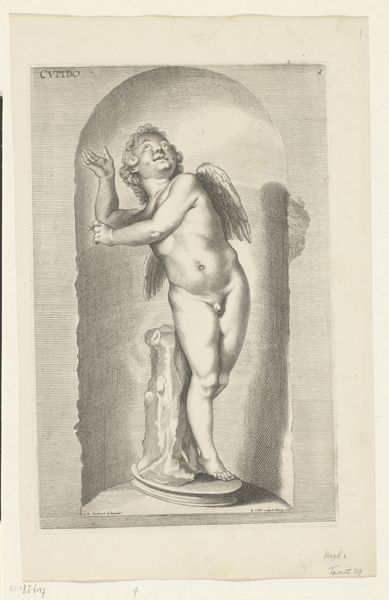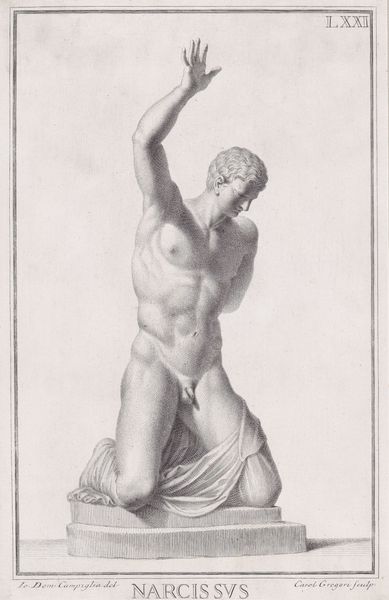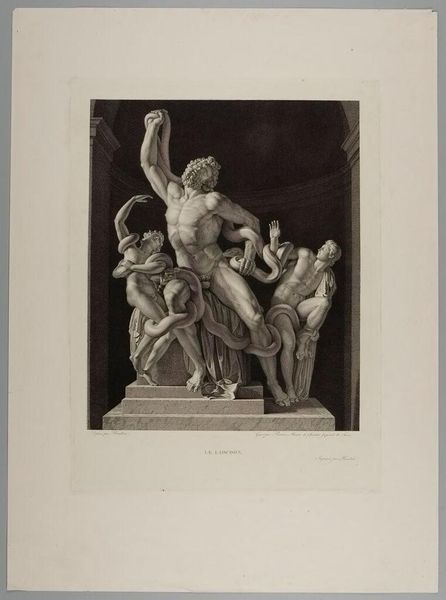
etching
#
baroque
#
etching
#
figuration
#
history-painting
#
nude
Dimensions: height 203 mm, width 115 mm
Copyright: Rijks Museum: Open Domain
Lucas Kilian created this print, "Hercules verslaat Caecus," sometime between 1579 and 1637. It depicts Hercules in a moment of triumph, towering over Caecus with a club raised high. Prints like these circulated widely during the Renaissance and Baroque periods, functioning as a form of cultural currency. They reveal the era's fascination with classical mythology and the male nude. Hercules, often celebrated as a symbol of strength and virtue, also embodies the power dynamics of his time. The vulnerability of Caecus contrasts sharply, inviting reflection on the themes of power, disability, and moral rectitude. Consider the original sculpture; does it challenge or reinforce these ideas? The print opens a dialogue about the narratives we tell ourselves through art, questioning who is cast as hero and villain, and whose stories are amplified or silenced. The emotional depth lies in understanding the nuances of power, the struggle for justice, and the human condition.
Comments
No comments
Be the first to comment and join the conversation on the ultimate creative platform.
